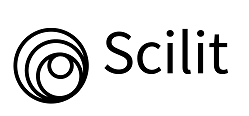EFISIENSI UNIT PENGUMPULAN ZAKAT (UPZ) DALAM MENGELOLA ZAKAT UNTUK MEMPERKUAT PEREKONOMIAN RAKYAT
DOI:
https://doi.org/10.59896/gara.v19i1.172Keywords:
Efficiency Of Zakat Collection Unit, Zakat Management, People’s EconomyAbstract
This research aims to discuss the implementation of zakat fund management, a study of the zakat collection unit of Tenggela village. In the study, a qualitative method with a descriptive approach was used. Data was obtained through observation, documentation, and direct interviews with informants to strengthen the data obtained by the researcher. The results of this study show that first, effective and transparent communication is essential, with zakat collection carried out through methods such as mosque announcements, village officials' administrative management, and tiered announcements from the Government. Human Resources (HR) plays a crucial role in the success of the Zakat Collection Unit (UPZ), and improving the quality and competence of human resources is very necessary, especially when involving the younger generation. Suitable management structures, experience, transparency, and coordination between related parties must be strengthened. Meanwhile, the level of public awareness in paying for Zakat is influenced by internal factors such as religiosity and psychological motivation, as well as external factors such as government regulations and attributes of Zakat institutions. Internal factors play a significant role in shaping public awareness and compliance with zakat obligations, while external factors can strengthen this awareness when socialized and implemented correctly. Religious education, regulatory socialization, transparency, and professionalism of zakat institutions are critical in increasing public trust and participation.
References
Agostinho, Camilla F. (2013). Humanitarian Logistics: How to Help Even More? IFAC Proceedings Volumes (IFAC-PapersOnline). Vol. 6. IFAC. https://doi.org/10.3182/20130911-3-BR-3021. 00075.
Akkerman, Renzo, Marjolein Buisman, Frans Cruijssen, Sander De Leeuw, and Rene Haijema. (2023). “Dealing with Donations: Supply Chain Management Challenges for Food Banks.” International Journal of Production Economics 262 (August):108926. https://doi.org/ 10.1016/j.ijpe.2023.108926.
Al Qaralleh, Amir Salameh. (2022). “Jordan and Syrian Humanitarian Refugees’ Dilemma: International Law Perspective.” Heliyon 8 (5): e09377. https://doi.org/10.1016/j.heliyon .2022.e09377.
Asman, Asman. (2021). “Delematika Hak Waris Anak Al-Laqith.” Diversi : Jurnal Hukum 7 (2): 217. https://doi.org/10.32503/diversi.v7i2.1353.
Bango, Fikran S, Naswar Naswar, Andi Syahwiah A Sapiddin, Maskun Maskun, N Normiati, Nur Mohamad Kasim, and M. Yusuf Syamsuddin. (2024). “Reconstruction of Legal Liability of Philanthropic Organisations in the Misuse of Humanitarian Donations.” Jurnal Hukum Novelty 15 (1): 53. https://doi.org/10.26555/novelty.v15i1.a28109.
Bogor, Institut Pertanian. (n.d). “Mengukur Kinerja Pengelolaan Zakat Di Badan Amil Zakat Nasional (Baznas) Deni Lubis Dedi Budiman Hakim Yunita Hermawati Putri.”
De Lima, Wenderson. (2023). “How Do Social Entrepreneurs Compete? Entrepreneurial Legitimacy in the Silicon Valley of Humanitarian Innovations.” Technovation 125 (July):102767. https://doi.org/10.1016/j.technovation.2023.102767.
Ertanti, Indriana, and Mahfud Fahrazi. (2022). “Praktik Ijab-Kabul (Akad) dalam Transaksi Jual Beli oleh Masyarakat Banjar Ditinjau dari Prespektif Hukum Ekonomi Islam.” DIVERSI : Jurnal Hukum 8 (2): 358. https://doi.org/10.32503/diversi.v8i2.2960.
Haskar, Edi. (2020). “Hubungan Pajak Dan Zakat Menurut Perspektif Islam.”
Hidayat, Wahyu, Norma Sari, and Jawade Hafidz. 2022. “Kebijakan Pembatasan Retail Modern di Daerah Dalam Perspektif Utilitarianisme.” DIVERSI : Jurnal Hukum 8 (2): 269. https://doi.Org/10.32503/Diversi.V8i2.3375.
Irwansyah. (2021). Penelitian Hukum: Pilihan Metode Dan Praktik Penulisan Artikel. 4th ed. Mirra Buana Media.
Karovska-Andonovska, Biljana. 2021. “Human Rights Law and Humanitarian Law: Between Complementarity and Contradiction.” Balkan Social Science Review 17:25–40. https://doi.org/10.46763/BSSR21170025ka.
Kasim, Nur Mohamad, and Sri Nanang Meiske Kamba. (2020). “Strategi Peningkatan Pemberdayaan Ekonomi Masyarakat Melalui Zakat Di Desa Taluduyunu.” Jurnal Abdidas 1 (6): 504–7. https://doi.org/10.31004/abdidas.v1i6.105.
Mahdi Syahbandir, Wais Alqarni, Dahlawi Maz, Abdul Hakim, and Bunyamin Muhiddin. (2022). “State Authority for Management of Zakat, Infaq, and Sadaqah as Locally-Generated Revenue: A Case Study at Baitul Mal in Aceh.” Al-Ihkam: Jurnal Hukum & Pranata Sosial 17 (2): 554–77. https://doi.org/10.19105/al-lhkam.v17i2.7229.
Minguito, Glenda, and Jenith Banluta. (2023). “Risk Management in Humanitarian Supply Chain Based on FMEA and Grey Relational Analysis.” Socio-Economic Planning Sciences 87 (June). https://doi.org/10.1016/j.seps.2023.101551.
Munandar, Eris. (2022). “Efektivitas Unit Pengumpul Zakat (Upz) Dalam Meningkatkan Jumlah Zakat, Infaq, Dan Sedekah Terhadap Peningkatan Kesejahteraan Ekonomi Mustahik Desa Margaharja.” Journal Ekonomi, Keuangan, Perbankan Dan Akuntansi Syariah 1 (01): 11–20. https://doi.org/10.54801/ekspektasy.v1i01.103.
Qaralleh, Amir Salameh Al. (2022). “Jordan and Syrian Humanitarian Refugees’ Dilemma: International Law Perspective.” Heliyon 8 (5). https://doi.org/10.1016/j.heliyon. 2022.e09377.
Sonata, Depri Liber. (2015). “Metode Penelitian Hukum Normatif Dan Empiris: Karakteristik Khas Dari Metode Meneliti Hukum.” Fiat Justisia:Jurnal Ilmu Hukum 8 (1). Https://Doi.Org/ 10.25041/Fiatjustisia.v8no1.283.
Syariah, Jurnal Ekonomi dan Perbankan, and Usman Zainuddin Urif Titiek Herwanti Moh Huzaini. (2018). “Iqtishadia Perilaku Mustahiq Dalam Memanfaatkan Dana Zakat Perspektif Ekonomi Islam” 5 (1).
Downloads
Published
How to Cite
Issue
Section
License
Copyright (c) 2025 FAISAL S BANGO, LUCYANE DJAFAR, NOPIANA MOZIN, FIKRAN S BANGO

This work is licensed under a Creative Commons Attribution-ShareAlike 4.0 International License.














